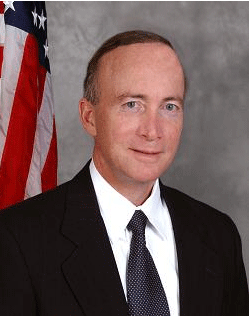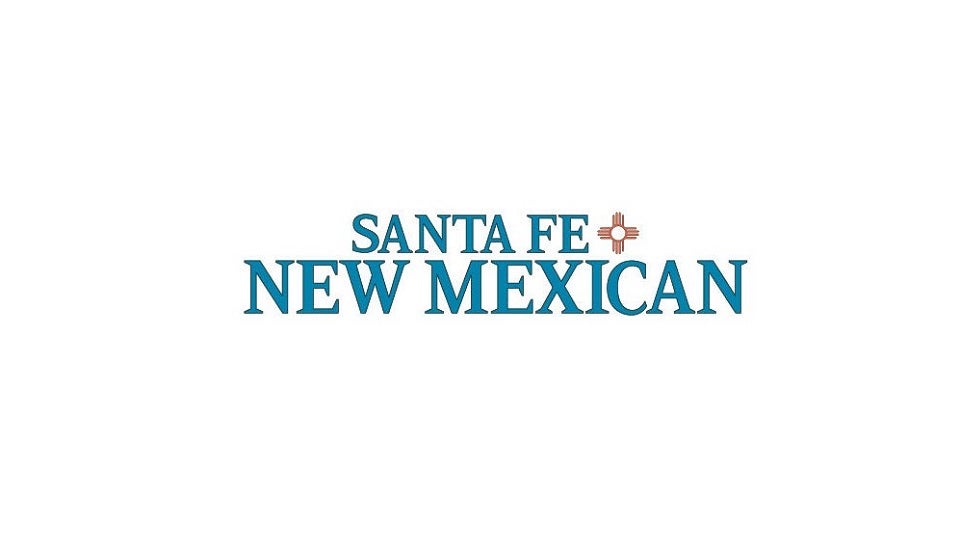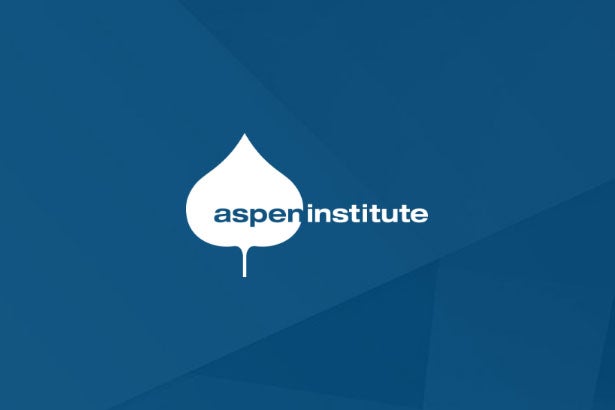Daniels came to Purdue University at the conclusion of his term as the 49th Governor of Indiana. He was elected Governor in 2004, in his first bid for any elected office. He was re-elected in 2008, receiving more votes than any candidate for any public office in the state’s history.
During his first term, Governor Daniels spearheaded a host of reforms aimed at improving the performance of state government. These changes and a strong emphasis on performance measurement have led to many state agencies, including the Bureau of Motor Vehicles, Department of Child Services and Department of Correction winning national awards.
In 2005, he led the state to its first balanced budget in eight years and, without a tax increase, transformed the nearly $800 million deficit he inherited into an annual surplus of $370 million within a year. The governor also repaid hundreds of millions of dollars the state had borrowed from Indiana’s public schools, state universities and local units of government in previous administrations, and reduced the state’s overall debt by 40 percent. Governor Daniels left Indiana with a budget in surplus, reserve funds equal to nearly 15 percent of annual spending, and its first AAA credit rating.
Daniels’ first legislative success created the public-private Indiana Economic Development Corporation to replace a failing state bureaucracy in the mission of attracting new jobs. In its first four years of existence, the agency broke all previous records for new jobs in the state and was associated with more than $18 billion of new investment. In 2008, Site Selection Magazine and CNBC both named Indiana as the Most Improved State for Business in the country. In 2012, Indiana became the 23rd Right-to-Work state. Indiana now ranks favorably in every national ranking of business attractiveness and job creation.
Governor Daniels’ innovations include the 2006 lease of the Indiana Toll Road. This is the largest privatization of public infrastructure in the United States and generated nearly $4 billion for Major Moves, the state’s record-breaking 10-year transportation and infrastructure program. The Healthy Indiana Plan was enacted in 2007 to provide healthcare coverage for uninsured Hoosier adults, and comprehensive property tax reforms in 2008 resulted in the biggest tax cut in Indiana history. Both initiatives received overwhelming bipartisan support, and Indiana remains among the states with the lowest property taxes in the nation.
In 2011, under his guidance, Indiana passed the most sweeping education reforms in the country, including the nation’s first statewide school choice voucher program. Because of these reforms, Indiana is dramatically expanding charter schools, providing parents with more school choice, revising teacher evaluations and expanding full-day kindergarten funding. In 2010, he established WGU Indiana, a partnership between the state and Western Governors University aimed at expanding access to higher education for Hoosiers and increasing the percentage of the state’s adult population with education beyond high school.
Daniels first became interested in public service while serving as chief of staff to Senator Richard Lugar. He has also served as a senior advisor to President Ronald Reagan and Director of the Office of Management and Budget under President George W. Bush. On his first day in office as Governor, Daniels created Indiana’s first Office of Management and Budget.
President Daniels also comes from a successful career in business, holding numerous top management positions. From 1987-1990, Daniels served as the CEO of the Hudson Institute. In 1990, he accepted a position at Eli Lilly and Company, the largest corporation headquartered in Indiana at that time, and eventually held the role of president of the company’s North American Pharmaceutical Operations.
In February 2013, Daniels was asked to co-chair the National Research Council’s Committee on Human Spaceflight, which reviewed the state of the U.S. human spaceflight program. The 18-month appointment culminated in June 2014 with the submission of a report that is helping to guide the sustainable future of the United States’ human spaceflight program. Daniels also co-chaired the Council on Foreign Relations’ 2014 taskforce on non-communicable diseases, which examined the challenges of treating these diseases in low- and middle-income countries, and the selection committee for the Aspen Institute’s 2015 Aspen Prize for community college excellence.
He currently serves as a co-chair of the Committee for a Responsible Federal Budget and, with U.S. Senator Mark Warner, he co-chairs the Aspen Institute’s Future of Work Initiative, a yearlong non-partisan effort to identify ways to strengthen America’s 21st-century workforce.
Daniels is also a board member of numerous non-profit organizations, including the Urban Institute and the American Academy of Arts & Sciences’ Commission on Post Secondary Education.


